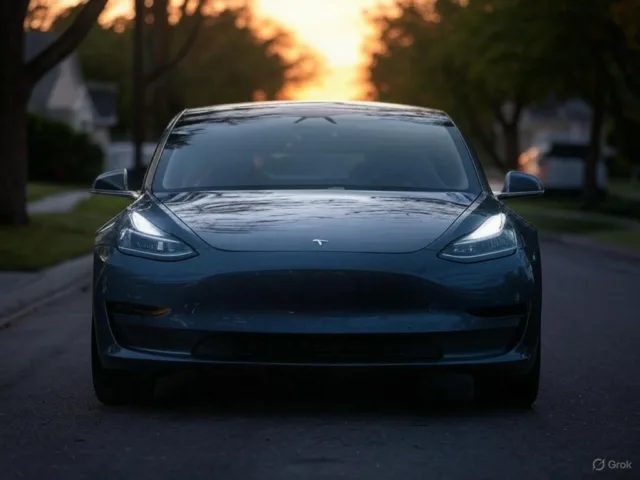
Tesla seems to be struggling in China. Tesla’s China-made electric vehicle sales dropped 4% in August from a year earlier, following an 8.4% fall in July, as the U.S. automaker refreshed its aging lineup in China’s hyper-competitive market.
Tesla is facing significant challenges in its two key international markets, China and Europe, in 2025. In China, Tesla’s sales have declined amid fierce competition from local manufacturers such as BYD, whose aggressive pricing and expanding product lineup have eroded Tesla’s market share. Despite Tesla’s efforts to cut prices and introduce new variants like the six-seater Model Y, it struggles to keep pace with the rapid innovation and affordability offered by Chinese rivals, causing its market share to shrink.
However, deliveries of Model 3 and Model Y vehicles made at Tesla’s Shanghai factory, including exports to Europe and other markets, surged 22.6% from July to 83,192 units last month, data from the China Passenger Car Association showed on Tuesday.
In Europe, Tesla’s situation is even more severe, with sales dropping by over 40% in the first half of 2025 compared to the previous year. This decline is attributed not only to the increasing presence of Chinese EV brands, which have rapidly gained market share, but also to reputational challenges tied to CEO Elon Musk’s controversial political affiliations and public statements. European consumers have shown growing hesitation, leading to a substantial erosion of Tesla’s foothold in the region.
READ: Tesla shuts down Dojo supercomputer team (
In China, Tesla faces its fiercest competition from homegrown electric vehicle manufacturers like BYD, NIO, XPeng, and Geely. These companies have rapidly expanded their market share by offering a diverse range of affordable, technologically advanced vehicles tailored to local consumer preferences. Their aggressive pricing, strong government support, and fast innovation cycles have significantly challenged Tesla’s dominance. As a result, these domestic players have emerged as Tesla’s biggest competitors in the world’s largest EV market, reshaping the competitive landscape and forcing Tesla to continuously evolve to maintain its foothold.
In 2025, BYD continues to dominate China’s electric vehicle market, holding nearly 30% of the market share. Despite a slight dip in domestic sales and production compared to the previous year, BYD remains a powerhouse with strong deliveries, innovative models, and competitive pricing. Its extensive lineup appeals to a broad range of consumers, helping it fend off competition. Meanwhile, NIO and XPeng are rapidly growing their presence, with both companies posting record deliveries thanks to new, affordable models and a focus on technology and user experience, making them formidable challengers to Tesla’s dominance.
READ: Hacker unlocks Tesla data, jury hits $243 million verdict (
Geely has also surged ahead with aggressive strategies, including the success of its Geome Xingyuan model, which became one of the best-selling electric vehicles in China in early 2025. Geely’s rapid growth, fueled by smart acquisitions and competitive pricing, highlights the intensifying competition Tesla faces in the Chinese market. Collectively, these companies’ innovations and strategic expansions are reshaping the landscape, pushing Tesla to continuously innovate and adapt to maintain its market position in China’s fast-evolving EV industry.
To increase sales, Tesla lowered the price for Model 3 rear-wheel drive with a range of 830 kilometres (516 miles) by 3.7% in China on Monday, less than a month after its China launch.
Tesla aims to regain momentum by expanding its product offerings, particularly focusing on launching a more affordable electric vehicle later this year. The company is also investing in new technologies such as AI-driven robotaxis and robotics, signaling a strategic pivot beyond just electric vehicles. However, to maintain its global leadership, Tesla must overcome intensifying competition, regulatory complexities, and brand perception issues in these critical markets.









